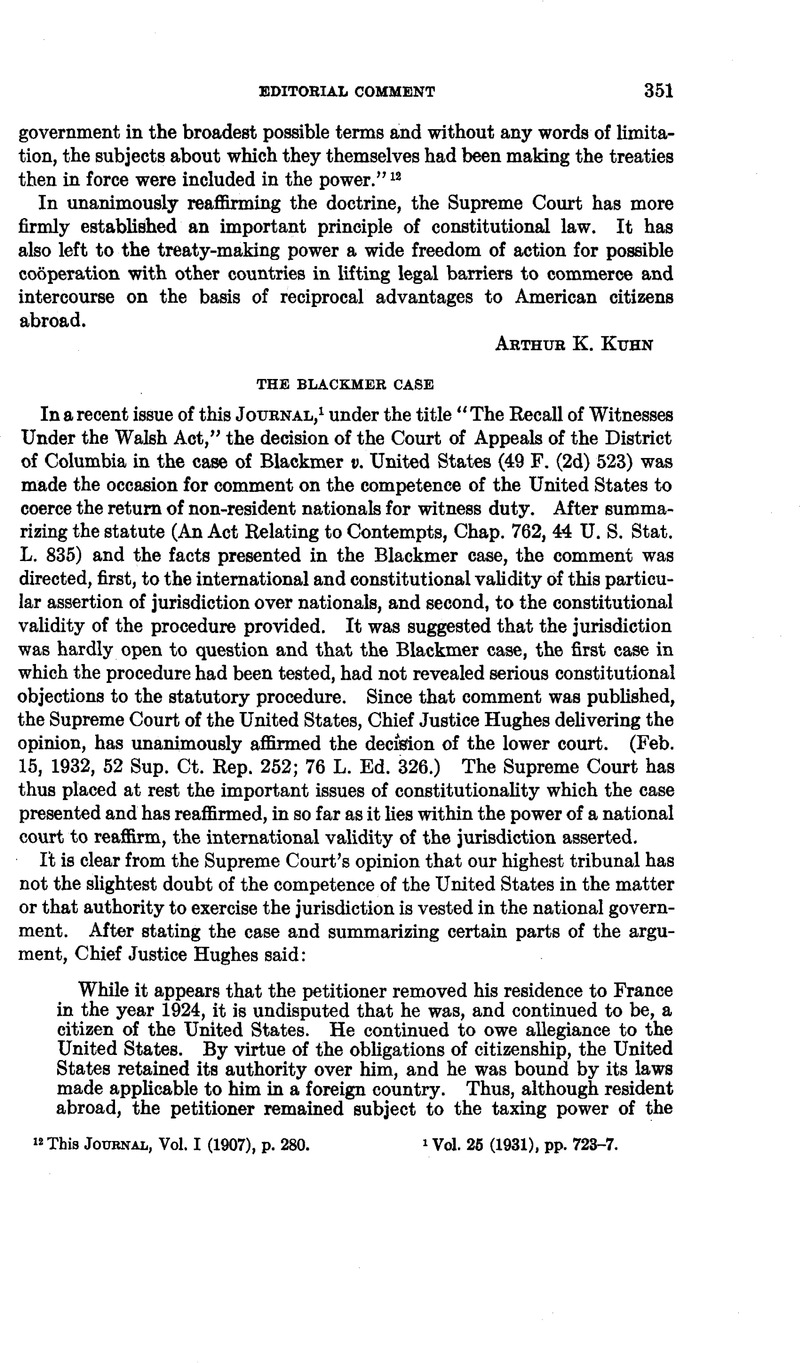No CrossRef data available.

1 Vol. 25 (1931), pp. 723-7.
2 “The law of Nations does not prevent a State from exercising jurisdiction over its subjects travelling or residing abroad, since they remain under its personal supremacy.” Oppenheim, International Law, 4th ed., vol. I, sec. 145, p. 281; Story, Conflict of Laws, 8th ed., sec. 540, p. 755; Moore's International Law Digest, vol. II, pp. 255, 256; Hyde, International Law, vol.I, sec. 240, p. 424; Borchard, Diplomatic Protection of Citizens Abroad, sec. 13, pp. 21, 22.” [Footnote to the opinion.]
3 “Compare The Nereide, 9 Cranch, 388, 422, 423; Rose v. Himely, 4 Cranch, 241, 279; The Apollon, 9 Wheat. 362, 370; Schibsby v. Westenholz, L. R. 6 Q. B. 155,161. Illustrations of acts of the Congress applicable to citizens abroad are the provisions found in the chapter of the Criminal Code relating to “Offenses against Operations of Government” (U. S. C , Tit. 18, chap. 4; United States v.. Bowman, 260 U. S. 94, 98-102) and the provisions relating to criminal correspondence with foreign governments, Act of Jan. 30,1799,1 Stat. 613, U. S. C , Tit. 18, sec. 5.” [Footnote to the opinion.]
4 “See, also, Hyde, op. cit., vol. 1, sec. 381, pp. 668, 669.” [Footnote to the opinion.]
5 52 Sup. Ct. Rep. 252, 254; 76 L. Ed. 326, 330.
6 “Cf. Dainese v. Hale, 91 U. S. 13,15,16; In re Ross, 140 U. S. 453, 462, 463. See, also, U. S. C, Tit. 22, sees. 71 et seq.; Hyde, op. cit., sec. 488, pp. 828-832.” [Footnote to the opinion.]
7 52 Sup. Ct. Rep. 252,255; 76 L. Ed. 326,331.
8 Ibid.